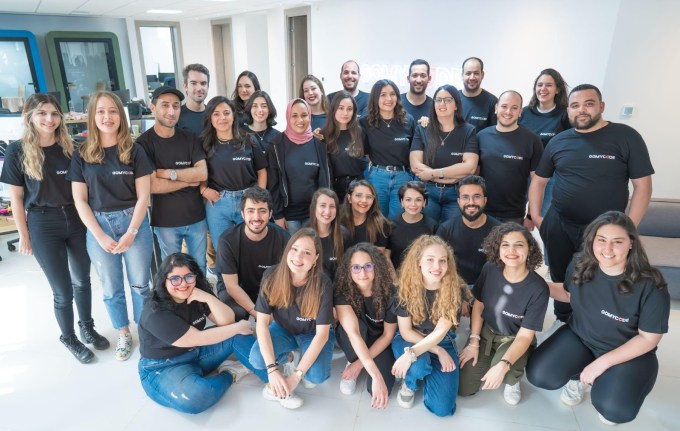After selling their hospitality tech startup, Teranga, in 2018, Senegalese brothers Moustapha and Alioune Ndoye ventured into the trucking business as they pondered their next move. However, it soon became clear to them that fleet management is a major challenge, and one that largely influences the level of profits to be made by truck-owners.
Some market research made them aware of the full extent of inefficiencies in the trucking business, which especially limited the earnings of owner-operators. And that is how their logistics tech startup, Chargel, was born.
“We realized that there were so many inefficiencies, and that the logistics sector in Senegal was so fragmented, but we felt that technology could help. So, we decided to be drivers for a few months to understand how the sector works, its real challenges, and where the opportunity was, before building something,” Moustapha told TechCrunch.
Chargel, which came out of stealth last year, matches shippers with transporters, digitizing processes that were previously largely offline. The startup is rapidly taking off, and now counts some of the world’s largest shipping companies, Maersk and Grimaldi, among its earliest clients.
In its next phase of growth, it is opening up its platform to more clients, as it had limited access to 10 companies. Its exploration of new growth avenues is backed by a $2.5 million seed round led by Logos Ventures. Ventures Platform, Foundation Botnar, DFS Labs, and Seedstars also participated in the round that also included $500,000 debt. The funding also includes $750,000 it announced last year.
“This year we are opening up the platform to more shippers in Senegal. We are also looking at expansion to one other Francophone African country,” said Moustapha, who briefly worked as a senior product manager in charge of business solutions at Senegalese unicorn Wave.

Chargel plans to expand to an additional country within Francophone Africa. Image Credits: Chargel
Chargel transporters, operating out of Senegal, make deliveries to neighboring countries Mali, Guinea and Mauritania. Establishing full operations in an additional country, Moustapha says, will increase their regional coverage, and solve many of the other headaches related to road freight.
“The demand is not just in Senegal; some of the clients we work with, like Maersk for example, serve nine countries out of the Senegalese office. Of course, they want us to be in those countries,” he said.
How Chargel works
Chargel doesn’t just offer a platform, it expedites the entire transport process, in that, when it receives online requests from clients like Maersk, it matches them with the most suitable providers (truck and driver) from its network of transporters. Senders are able to track their goods while on the move, and receive notifications once delivery is done. The platform also pools together independent transporters, giving them new earning opportunities.
“We are actually the ones in the middle because clients contract us and we are responsible for the cargo. Our goal is to make sure that the cargo goes from point A to B on time,” he said.
“We are making sure that shippers focus on their business, and truck drivers focus on driving, and we take care of everything that happens in between,” said Moustapha, adding that the startup gives transporters access to other services such as insurance.
Moustapha says Chargel did over $1.2 million in GMV in 2022, adding that they are close to surpassing that figure so far this year.
Chargel is the brothers’ fourth stab at entrepreneurship after they returned to the country upon completing their studies in the U.S. Their plan is to tap the expected trade boom in Africa. Freight demand within Africa is expected to grow 28% by the close of the decade as intra-regional commerce flourishes, driven by the African Continental Free Trade Area (AfCFTA), the single largest unrestricted trade region in the world. As trade within Africa already relies on road freight transport, this growth is set to further grow the demand for trucking services.
Senegal’s logistics tech startup Chargel raises $2.5M seed funding by Annie Njanja originally published on TechCrunch


 The basketface
The basketface 



